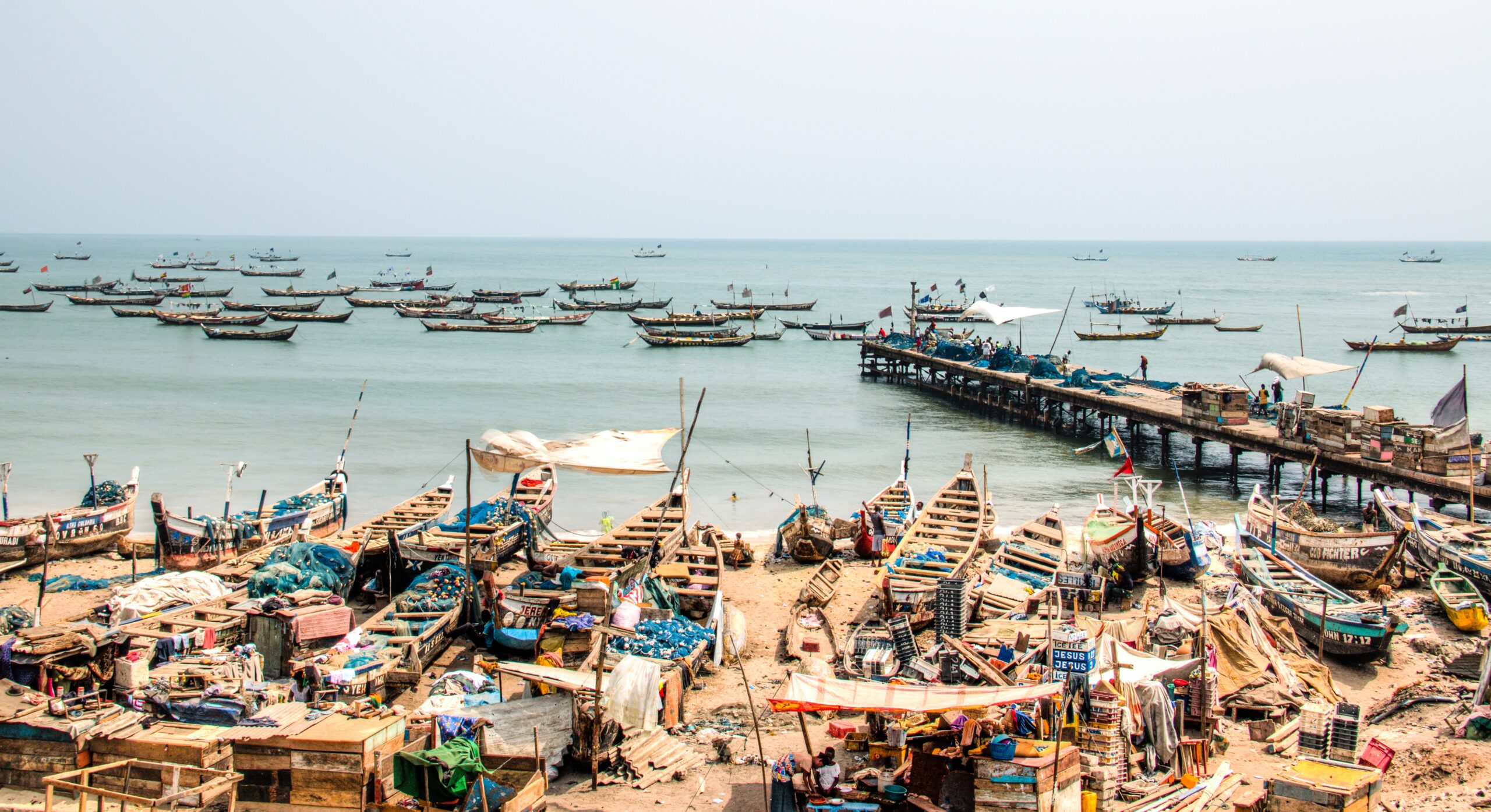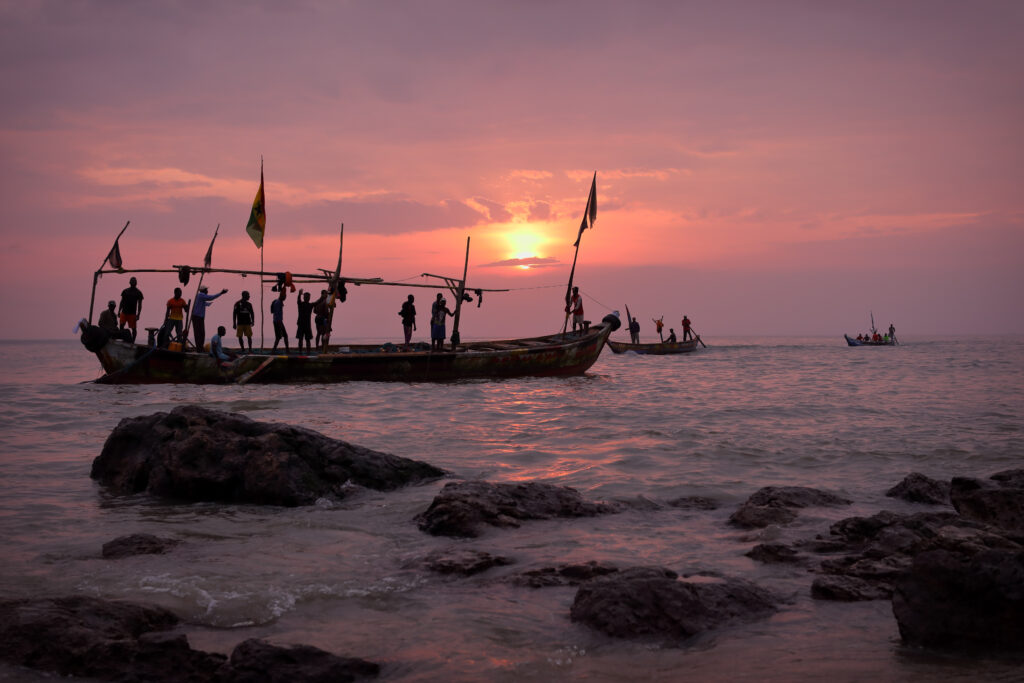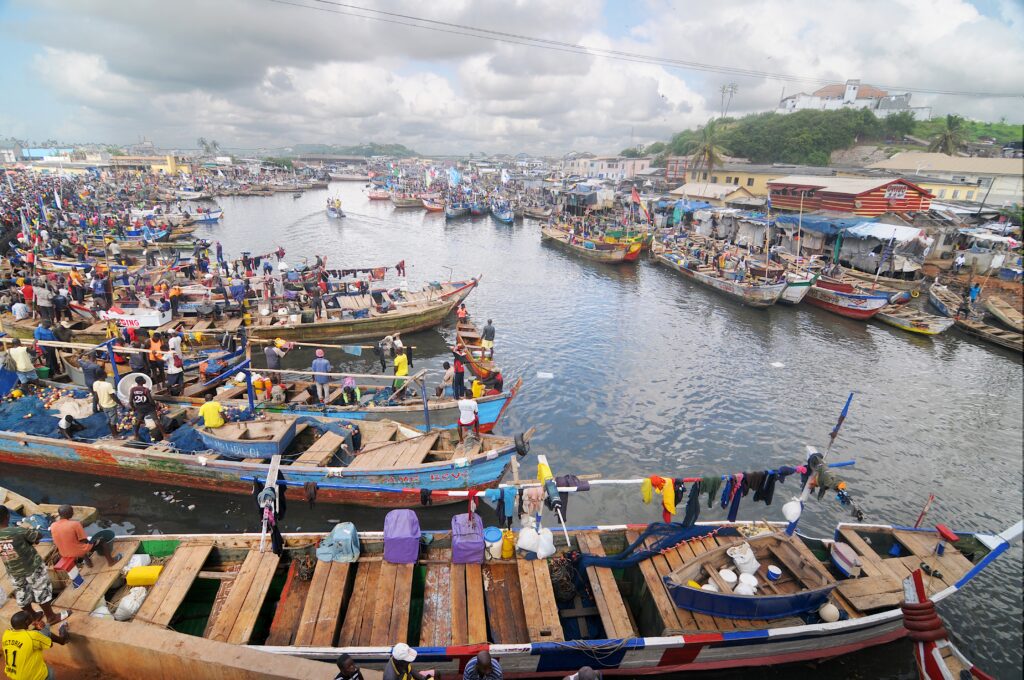Across the Atlantic
Illegal, Unreported, and Unregulated Fishing: The Silent Threat to Oceans and Livelihoods

Can Ghana reverse its declining marine resources?
Ed.note: “Across the Atlantic” is a new series that offers short glimpses at stories and issues along the Atlantic’s eastern coasts.
The road to achieving the United Nations’ sustainable development goal for “zero hunger” seems murky due to the rise of illegal, unreported, and unregulated (IUU) fishing.
IUU fishing is a significant global issue, ranking as the sixth-largest crime, according to Transnational Crime and the Developing World, a report from Global Financial Integrity. In fact, IUU accounts for up to 20% of fish caught at sea and is worth up to an estimated $23.5 billion annually.
In addition, a 2022 Stanford Center for Ocean Solutions study by Elizabeth Selig and her colleagues revealed the global risks of labor abuse and IUU fishing. It also indicated that Argentina, Peru, Chile, and Western Africa were high-risk zones of “transshipment” — the unloading of goods from one ship onto another on route to a final destination.
A Yellow Card from the European Commission
Ghana, a developing country in West Africa, received a “yellow card” from the European Commission in 2013 due to concerns over illegal fishing but had it lifted in 2015 after adopting new legislation and a fisheries management plan. However, poor implementation of the legislation and the plan’s policies prompted the European Commission to re-issue the warning in 2021.
The “yellow card” is an official warning from the European Commission to trading partners who fail to tackle IUU fishing. If noncompliance or non-collaboration continues, a “red card” follows, resulting in a seafood exports ban to the European Union, among other sanctions. This system aims to promote stronger fisheries governance and deter illegal practices globally by making compliance with sustainable fishing standards a prerequisite for trade with the EU.

Ghana’s newly appointed Minister of Fisheries and Aquaculture Development, Emelia Arthur, now has the opportunity to enforce sustainable fisheries management. Strengthening these measures would not only secure the EU’s removal of the yellow card but also prevent future sanctions and ensure the long-term sustainability of Ghana’s fisheries.
Tracking Rogue Operators
Fish is the third most consumed animal protein in Ghana, following chicken and beef. In 2020 and 2021, per capita fish consumption stood at 44.5 pounds and 54.2 pounds per person per year, respectively. Significantly, this exceeds the Food and Agriculture Organization’s estimate of 19 to 22 pounds in sub-Saharan Africa, demonstrating the importance of fish for food and nutrition security in Ghana.
However, IUU activities have continued to plague the fishing sector. A recent report by the Environmental Justice Foundation revealed that Ghana loses between $14.4 million and $23.7 million annually in licensing fees and fines from trawlers due to illegal fishing.
Non-Ghanaian companies partially or fully own about 90% of industrial fishing vessels. These operators exploit legal loopholes by registering their vessels under local “front” or shell companies to disguise their ownership, allowing them to evade fines and circumvent regulations.
“This is why we are working to map and monitor every large fishing vessel in the world,” says Fred Kwasi Antwi-Boadu, executive director of Ghana’s Fisheries Commission. “We use this data to enable authorities and the wider ocean community to identify rogue operators and take action.”
The new measures, he adds, have increased compliance to 70% by trawlers and about 90% for artisanal boats. “The number of trawlers’ fleets have reduced to 45 — from 106.”

Antwi-Boadu says that the final hurdle for the European Commission to lift the yellow card is the amendment of Ghana’s Fisheries Act. The Act provides for the regulation and management of fisheries, the development of the fishing industry, and sustainable use of fishery resources, among other provisions.
In addition, an amendment of the act will in effect empower the Minister to make regulations to combat IUU fishing in accordance with international obligations and standards.
The Rise of Aquaculture
According to a UN report, the far-reaching impacts of IUU fishing extend beyond environmental concerns and disrupt economic development, food security, and ocean ecosystems. By bypassing regulations, IUU fishing harms legitimate fishers and the coastal communities that depend on them.
As a result, aquaculture (fish farming) has gained significant popularity in Ghana.
“Aquaculture is now the alternative to fill the gap created by illegal fishing,” says Jacob Adzikah, chief executive officer of the Chamber of Aquaculture Ghana. “Illegal fishing has led to an increased demand for aquaculture products, because Ghanaians are ardent fish eaters.”
Adzikah says that the Chamber also has embarked on collaborative advocacy events with the Fisheries Commission to “highlight the negative impacts of IUU and to end it as soon as possible.”
In addition, Adzikah notes that a new effort aims to diversify Ghana’s aquaculture sector, including mariculture (shellfish farming), and to prevent overcrowding on the Volta Lake, the nation’s primary fish farming hub.
“A pilot study is ongoing at Kasoa and at Ada,” he says. “Hopefully, if this study is successful, Ghana will see an expansion of mariculture farms in the near future.”
Emma Davies is an award-winning journalist and a contributing editor for Coastwatch. She is pursuing a masters of arts in liberal studies at North Carolina State University, with a concentration in communication and genetic engineering.
lead photo: AdobeStock


